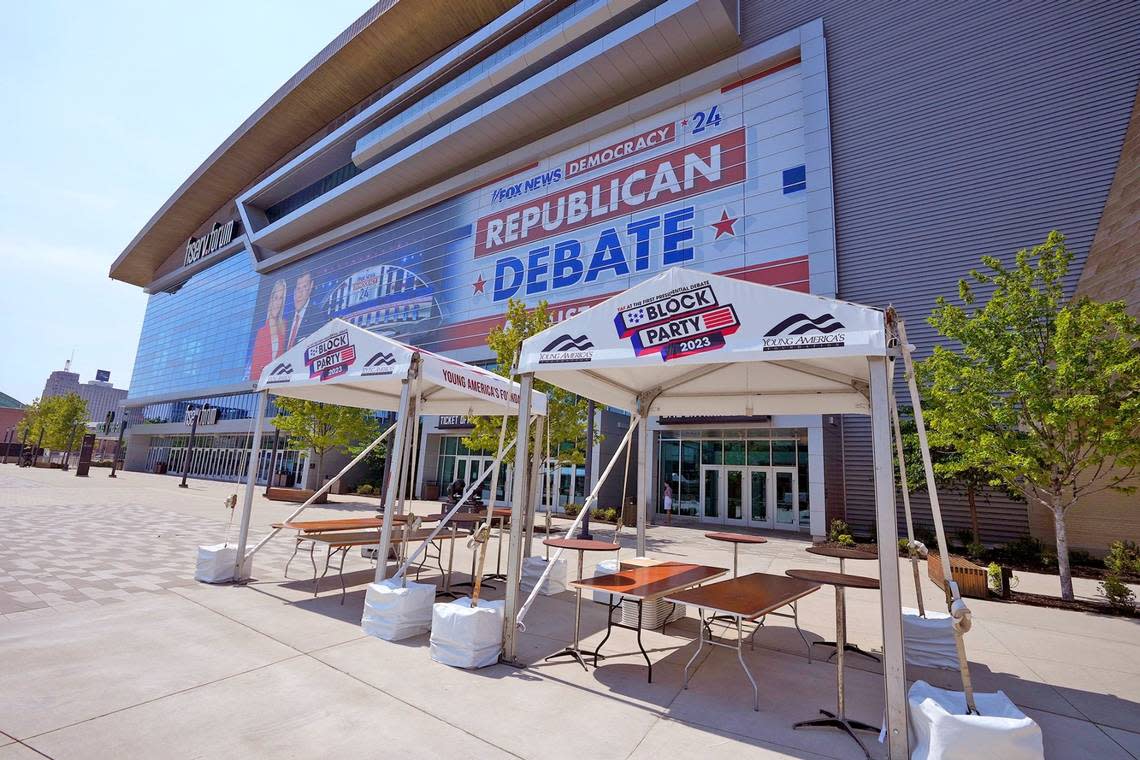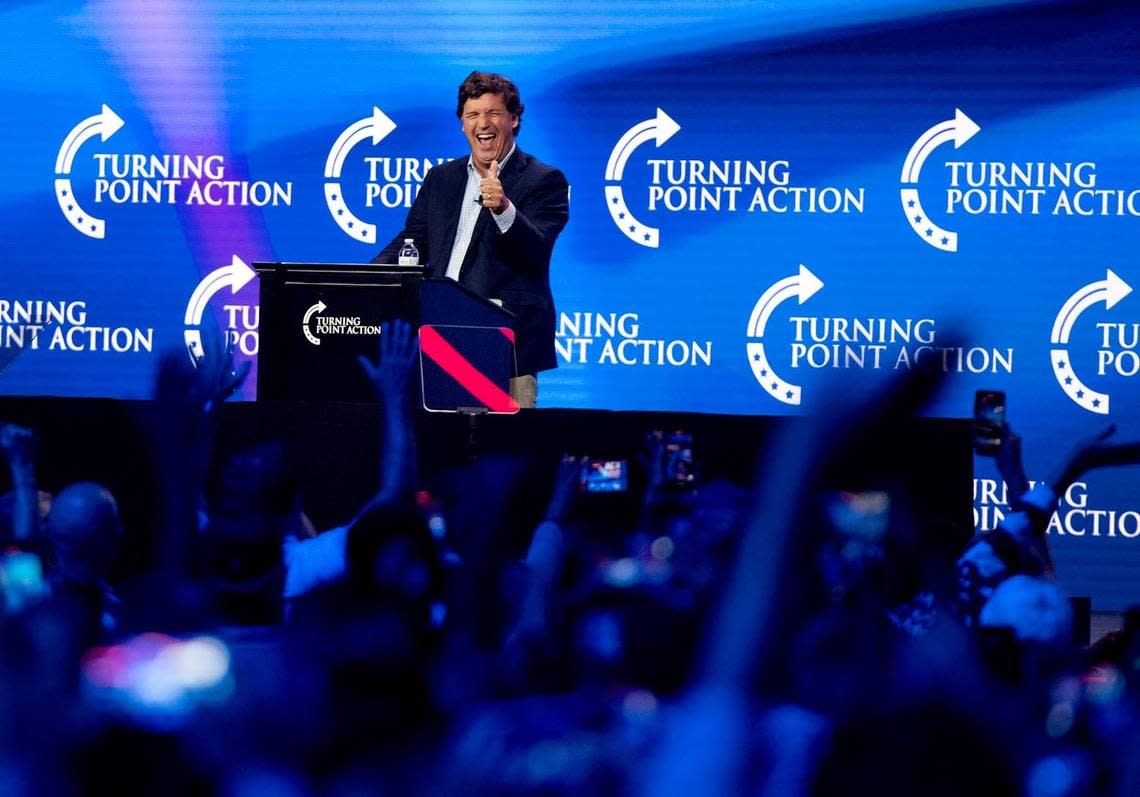Debates are overrated. Infotainment doesn’t tell us who might be a good president | Opinion
Here we go again with one of the most overrated aspects of American politics.
No, not Pete Buttigieg. Presidential debates.
For political obsessives (and I am one), Wednesday night’s Republican showdown from Milwaukee is a mini-Super Bowl. We’ll watch every moment, dissect every line, speculate about who’s up and who’s down, argue over who made the most of their time.

For months, we’ve often heard candidates evaluated based on whether they “should be on the debate stage,” what their strategies should be to stand out in a two-hour slugfest or to take on Donald Trump — who won’t even bother to show.
It’s become great entertainment. There’s just one problem: Debates don’t measure much of what makes a strong candidate, and even less of what makes a good president.
They don’t quantify the ability to set a firm vision and hire the right people to execute it. They don’t show us anything about how a candidate will make difficult decisions under tremendous pressure. We don’t learn much about who can build a sprawling-but-nimble operation to win the election.
And debates sure don’t demonstrate whether a candidate can navigate congressional negotiations, succeed in summits with world leaders or — something Republican voters care a lot about these days — move the languorous federal bureaucracy (aka, the “deep state”).
Debates are all about talk, which is important for a president. But it’s not as vital as action.
Worse yet, primary debates are often evaluated on the basis of who can do best in the general election faceoff with the other party’s nominee. In 2012, Newt Gingrich rose in the GOP primaries in part by arguing that he’d be the guy to really stick it to Barack Obama in the fall debates. Talk about circular logic.
All this is not to say, however, that debates have no value. They can demonstrate a candidate’s ability to think on his or her feet, defend a message (or duck questions) and handle criticism. Sometimes, they can show an unscripted moment of humor or vulnerability. Within the party, they help determine if a candidate is truly viable.
This year, though, they’re shaping up to be less useful. The criteria for making the stage included a requirement that a candidate have at least 40,000 individual donors, with at least 200 from each U.S. state or territory. Seems like a fair measure of support in the party, right?
It was easily manipulated, though. North Dakota Gov. Doug Burgum used his personal wealth to entice $1 donations by sending donors a $20 gift card. Aren’t Republicans supposed to be against politicians handing out free money?
The donor criteria almost kept Mike Pence off the stage. If your debate rules allow buying your way in but nearly rule out a former vice president, you need new rules.

It’s a game show, and thanks to Trump, it’ll be a split-screen reality show, too. The frontrunner is instead doing an interview with Tucker Carlson, the host formerly known as a Fox News star, on X, the platform formerly known as Twitter. There are good arguments for and against Trump debating, but counter-programming serves his interests, not the voters’.
Trump didn’t start the trend of politics turning into an entertainment product, but he rode the wave to new heights. One wonders how so many voters can really think that a guy who’s campaign will be about the last election and keeping himself out of prison is their best choice.
But what if they don’t? What if they’ve just decided he’s the most fun, the best show to watch, and they don’t actually care that much about winning or the issues they say matter most?
So, off we go. We’ll talk for days about the best zingers, or who looked too programmed, or who made a mess that his or her campaign will have to clean up. I’m as guilty as anyone.
What we won’t talk about enough is whether any of the candidates showed us they could actually govern well.
But then, that’s not the point anymore. Entertainment is.
Do you have an opinion on this topic? Tell us!
We love to hear from Texans with opinions on the news — and to publish those views in the Opinion section.
• Letters should be no more than 150 words.
• Writers should submit letters only once every 30 days.
• Include your name, address (including city of residence), phone number and email address, so we can contact you if we have questions.
You can submit a letter to the editor two ways:
• Email letters@star-telegram.com (preferred).
• Fill out this online form.
Please note: Letters will be edited for style and clarity. Publication is not guaranteed. The best letters are focused on one topic.
